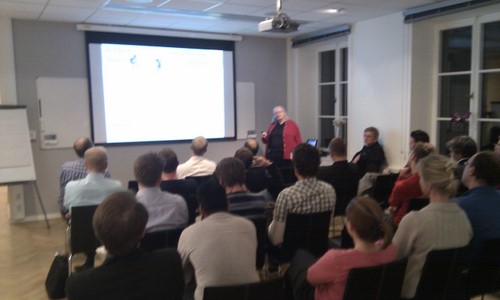Jag utbildade mig nyligen till handledare för försvarshögskolans koncept Utvecklande Ledarskap (UL); fem mycket inspirerande och lärorika dagar. Förutom ny kunskap har jag dock också med mig upplevelsen kring kraften i grupputveckling när den blir som bäst. Under kursen satt och jobbade vi i kvarteret där vi både hjälpte varandra förstå kursinnehållet men också förberedde och genomförde en del av den normala UL-kursen inför övriga kursdeltagare. Det är fascinerande hur starkt relationerna inom en grupp kan utvecklas, och från det att en tydlig teameffekt kan växa fram, efter så kort tid som några få dagar.
Det fick mig att fundera på vad det var som hände under kursen som gjorde detta möjligt. Vid reflektionen kring hur utbildningen var strukturerad, den miljö vi befann oss i, handledarnas agerande och vad vi gjorde i kvartetterna, landade jag i att nedanstående fyra aspekter hjälpte oss till att formeras till kraftfullt team under veckan som gick:
- fokus på att bygga en trygg miljö,
- Vi hade väldigt tajta målsättningar att arbeta mot
- Det fanns möjligheten till frekvent feedback på de resultat vi skapade, samt vi gav varandra löpande feedback på varandras prestationer
- och vi var en liten och komplett gruppering som skulle lösa uppdraget tillsammans självständigt.




